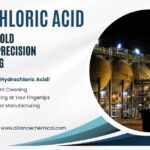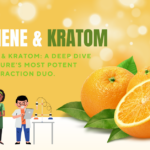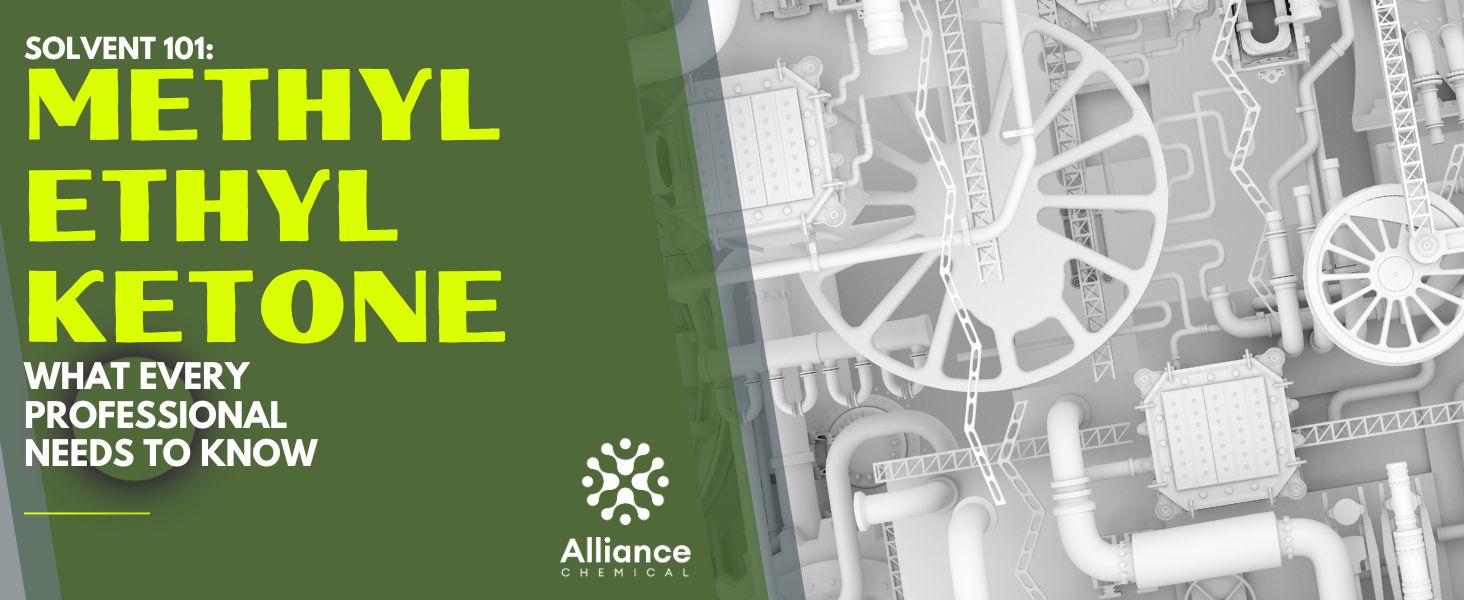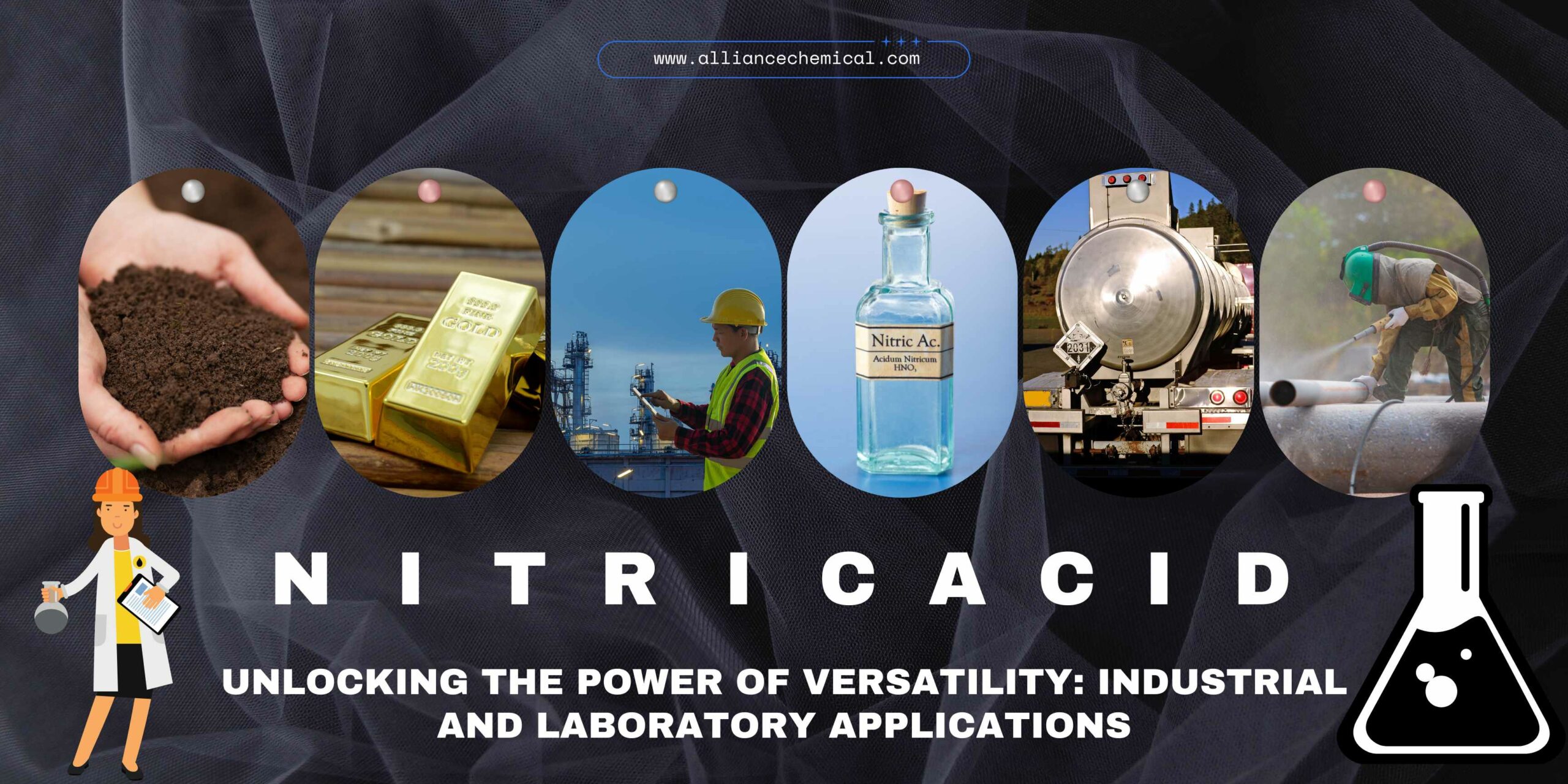
An Introduction to the Various Uses of Nitric Acid
Nitric acid, a strong and highly corrosive mineral acid, is a ubiquitous chemical used across various industries due to its unique properties and multiple applications. It’s colorless and liquid, and it presents an acrid odor that makes it easily identifiable. Known chemically as HNO3, nitric acid, in its concentrated form, is a powerful oxidizing agent.
Production of Nitric Acid
Nitric acid is typically produced on an industrial scale using the Ostwald process. The Ostwald process oxidizes ammonia to nitric acid by using a series of reactions, making it possible to produce nitric acid in large quantities.
Use of Nitric Acid in Refining Metals
One of the primary uses of nitric acid is in the metallurgical industry, specifically in metal refinement and recovery.
Nitric acid is used to dissolve metals like silver and gold, an application that becomes especially important in the recovery of these precious metals from ores or recycled materials. In a process known as parting, nitric acid is employed to dissolve the silver from gold, thereby helping in the purification of gold.

Another important role nitric acid plays in metallurgy is its use in ‘pickling’ or cleaning stainless steel and other corrosion-resistant iron alloys. Nitric acid baths are used to remove surface iron contamination, which can instigate corrosion.
Nitric Acid and Aqua Fortis
Historically, nitric acid was also known as ‘Aqua Fortis’, a name derived from Latin, meaning “strong water.” It was a key substance in the practice of alchemy. Today, nitric acid is an essential reagent in modern laboratories and is used in the manufacture of a vast array of chemicals.
Nitric Acid in Fertilizer Production
Nitric acid plays a pivotal role in agriculture, particularly in the production of fertilizers. It’s a key component in the manufacture of ammonium nitrate, a nitrogen-rich fertilizer commonly used to support plant growth and improve crop yields.
Use in Manufacturing Chemicals
Besides fertilizer production, nitric acid is used extensively in the manufacture of various chemicals. For instance, nitric acid is used in producing a variety of polyurethane and polyamidoamine foams. It’s also employed in the synthesis of nitrobenzene, dyes, and other industrial chemicals.
Safety Considerations and Handling
Given its highly corrosive and reactive nature, handling nitric acid requires caution. It’s capable of causing severe burns and is harmful if inhaled. Hence, safety procedures, including the use of appropriate personal protective equipment, should be in place when dealing with nitric acid.
Comparing Nitric Acid to Other Acids
Nitric acid is one among many acids used in industrial applications. Other notable acids include sulfuric acid, hydrochloric acid, and phosphoric acid. Each of these acids has its unique properties and applications. For instance, sulfuric acid is a key component in the production of detergents, while hydrochloric acid is commonly used in the food industry and steel pickling. However, few acids share the versatility and wide application range that nitric acid boasts.
-
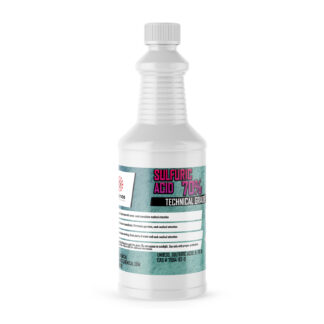 Sulfuric Acid 70%$35.00 – $4,860.00
Sulfuric Acid 70%$35.00 – $4,860.00 -
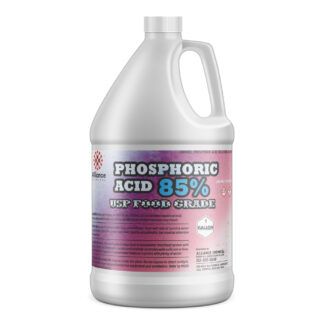 Phosphoric Acid 85% USP Food Grade$25.00 – $6,615.00
Phosphoric Acid 85% USP Food Grade$25.00 – $6,615.00 -
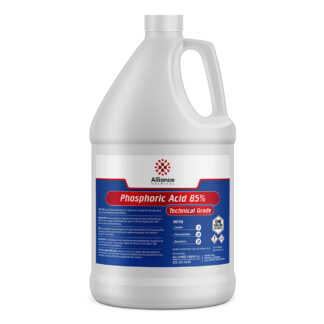 Phosphoric Acid 85% – Technical Grade$29.00 – $6,075.00
Phosphoric Acid 85% – Technical Grade$29.00 – $6,075.00 -
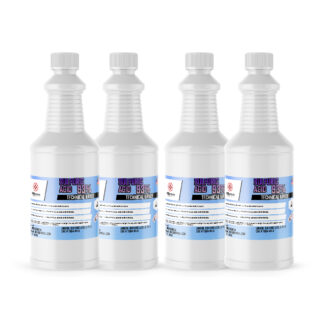 Sulfuric Acid 93% Technical Grade$38.00 – $6,075.00
Sulfuric Acid 93% Technical Grade$38.00 – $6,075.00 -
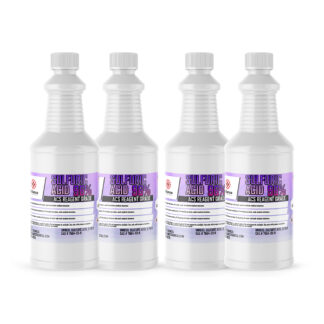 Sulfuric Acid 96% ACS Grade$39.50 – $8,900.00
Sulfuric Acid 96% ACS Grade$39.50 – $8,900.00 -
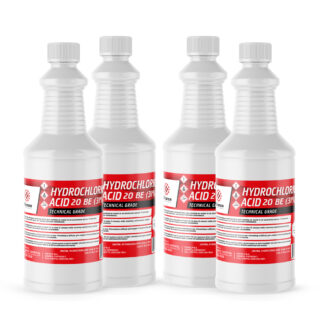 Hydrochloric Acid 31% Technical Grade$22.00 – $5,022.00
Hydrochloric Acid 31% Technical Grade$22.00 – $5,022.00
Quality and Concentration
The application and safety handling of nitric acid are largely dependent on its concentration. For instance, a 70% ACS Reagent Grade nitric acid is suitable for many laboratory and industrial applications due to its purity and concentration.
-
 Nitric Acid ACS 69% – 55 Gallon Drum$3,100.00
Nitric Acid ACS 69% – 55 Gallon Drum$3,100.00 -
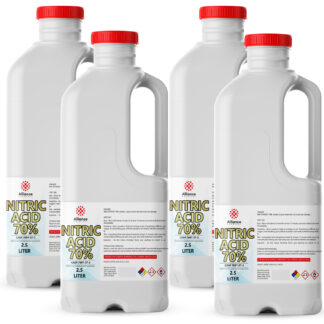 Nitric Acid 70% ACS Grade – Low Particle$89.00 – $12,300.00
Nitric Acid 70% ACS Grade – Low Particle$89.00 – $12,300.00 -
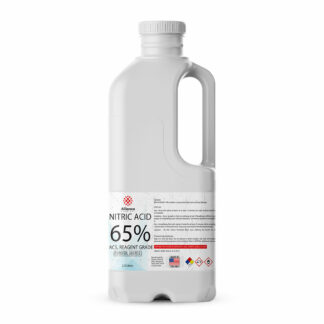 Nitric Acid 65% ACS Reagent Grade$68.00 – $7,200.00
Nitric Acid 65% ACS Reagent Grade$68.00 – $7,200.00
In summary, nitric acid is a profoundly important chemical in various industries due to its unique properties and versatile applications. Its role in metallurgy, fertilizer production, and chemical manufacturing, among other uses, makes it a substance of significant industrial relevance. As with all chemicals, handling nitric acid requires knowledge, respect, and appropriate safety precautions.
Remember, the best way to ensure that you’re getting a product that is safe and of the highest quality is to purchase from a reputable supplier like Alliance Chemical. They offer a variety of chemical products, including Hydrochloric Acid 37% and many more to meet your diverse needs.
-
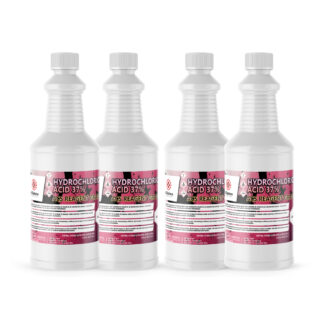 Hydrochloric Acid 37% ACS Reagent Grade$28.00 – $7,290.00
Hydrochloric Acid 37% ACS Reagent Grade$28.00 – $7,290.00
Conclusion
In closing, the impact and utility of nitric acid stretch across numerous industries and applications, making it an indispensable chemical compound. From refining precious metals and producing potent fertilizers to synthesizing a vast array of chemicals, nitric acid’s unique characteristics offer wide-ranging uses.
Despite its corrosive nature, with the right safety measures and careful handling, nitric acid continues to be a crucial ingredient in the growth and progression of many industries. The significance of nitric acid reinforces the fact that chemistry plays a vital role not only in scientific research but also in driving forward industrial growth and economic development.
It’s also important to note that the quality and purity of nitric acid, like any other chemical reagent, are paramount. Opting for a reliable supplier, such as Alliance Chemical, guarantees access to high-quality products. They offer a variety of acids, including a high-concentration 70% ACS Reagent Grade Nitric Acid, that can be used safely and effectively for various applications.
In the grand scheme of things, nitric acid, with its diverse uses and significant impact, truly encapsulates the dynamic and powerful world of chemistry.





